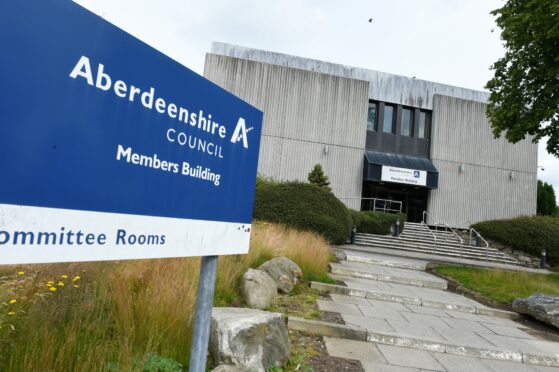Aberdeenshire Council is to develop a route-map to show how it will cut its carbon emissions by 75% by the end of the decade.
A key aspect of the initiative will be to create a toolkit designed to identify projects that will be of most benefit to the public and environment.
Projects that are both energy and money savers will be prioritised to help the authority make significant steps to meet its ambitious 2030 goal.
The first carbon budget for Aberdeenshire Council was set in 2017, however this year the budget is streamlined to help better integrate it into council services.
However, the carbon budget has not yet been incorporated into the financial budgets which is critical to understanding the financial impact of a 75% decrease in emissions.
Masterplan to look at short and long-term
In March 2020, the council agreed upon a declaration of intent to reduce carbon emissions in the authority by 75% against figures from 2010/11.
This will help towards Aberdeenshire Council achieving its next goal of net-zero and carbon-free society by 2045.
The authority’s sustainability committee chairman, Iain Taylor, said: “I very much welcome this significant step towards reducing our carbon budget and hitting key environmental and climate improvements over the next five years.
“Although the route-map mirrors the objectives of Cop26, it has not been designed as such and will focus on the particular needs and requirements of Aberdeenshire.”
Peter Argyle, chairman of the Infrastructure Services Committee, added: “This critical piece of work may also help us to identify the short-term and long-term resources we as a council will require in order for Aberdeenshire to become a Net Zero region by 2045.
“It will also provide opportunities for joining up national and local priorities and potentially help us to identify projects ready for future funding.”
Gordon MP Richard Thomson said: “Action to tackle climate change and reduce emissions is vital, so I am pleased Aberdeenshire Council is building on the good work of the previous SNP-led administration by taking things to the next stage
“The introduction of the carbon budget led to a more innovative approach being taken in some areas of the council’s operations where carbon budgeting is now an accepted part of the day-to-day work.”
